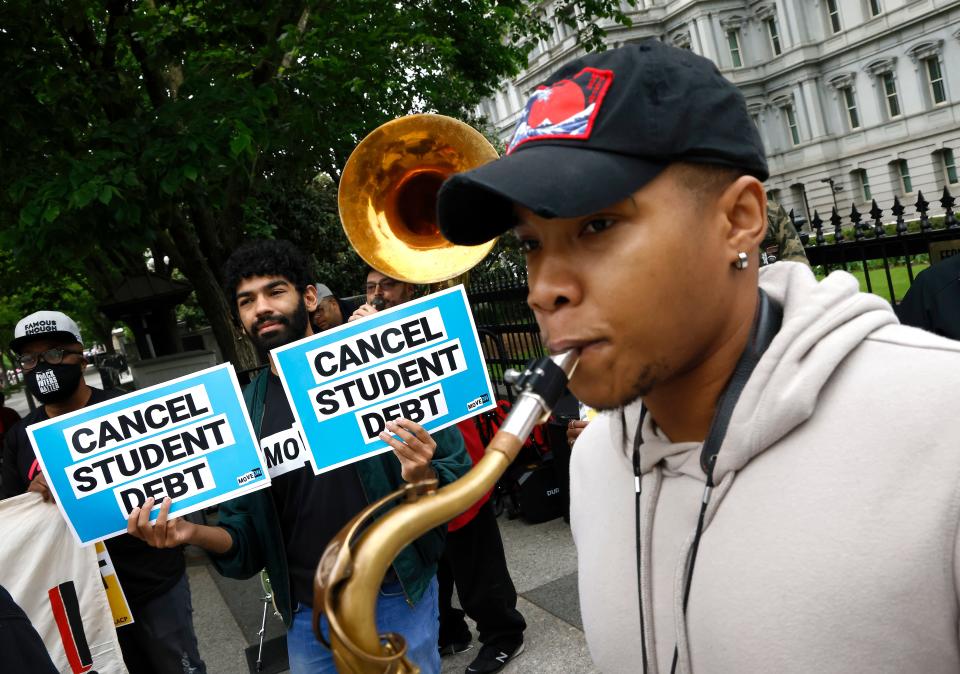Why you should pay your student loans, even as forbearance is extended | Opinion
As the COVID-19 pandemic began wreaking havoc on the nation and world in early 2020, one of the greatest impacts it had — other than the sickness itself — was on our economy. By March 2020, businesses of all types were finding the need to close temporarily (with some never reopening), while others were forced to drastically reduce their number of employees to compensate for the loss of business.
In an effort to avoid an economic crisis, in addition to the health care crisis, the federal government created a stimulus package of $2 trillion dollars to be distributed in various ways that included direct payments to taxpayers, loans for small businesses and expanded unemployment benefits.

In addition, the federal government created a program that would allow student loan payments to be temporarily “paused.” This was commonly known as “student loan forbearance.” This program began in March 2020 and has been extended several times throughout the past two years. It was set to expire on May 1, 2022, but the Biden administration extended it again until Aug. 31, 2022, with the possibility of further extensions.
For some, student loan forbearance has enabled those struggling financially to survive these difficult times. But for others, who either never saw their income interrupted by COVID-19 or have fully recovered from the financial crisis of March 2022, the question arises: “Should I restart paying my student loan payments even though I don’t have to?”

Your state. Your stories. Support more reporting like this.
A subscription gives you unlimited access to stories across Tennessee that make a difference in your life and the lives of those around you. Click here to become a subscriber.
As a financial advisor, I have advised a number of my clients with student loan debt to start paying it back due to the following four primary reasons:
• Debt affects your credit rating. The amount of debt you hold drastically affects your credit rating. As the balance of your student loan goes down, your credit rating goes up. So, if you can afford your student loan payments and begin making them again, it will greatly improve your credit score.
Hear more Tennessee voices: Get the weekly opinion newsletter for insightful and thought-provoking columns.

• Without student loans, you can accomplish other goals. Another financial impact of the COVID-19 pandemic is the rapid increase in inflation. This is especially true in the areas of housing and automobile purchases. Two primary factors in the ability to purchase a home or a vehicle are your ability to make the payment and your underlying credit rating. With student loan debt paid off, it will assist you in both of these areas. It provides additional discretionary income to put towards other goals such as a home or car, and it improves your ability to be approved for a loan due to a better credit rating. Even for those who have already been able to purchase a home or a car, it can enable you to free up the funds for other goals such as a vacation or contributing more to your retirement account.
• The program wasn’t meant for people whose financial situation hasn’t changed during the COVID-19 pandemic. The program was designed to assist those with student loans who saw their income greatly reduced or eliminated because of the pandemic. If your financial situation is the same as pre-pandemic or has improved with rising wages, making timely payments is the moral and the ethical thing to do since a student loan is a contract where money was borrowed and agreed to be paid back in a certain timeframe. Honoring a financial contract is a great way to develop positive financial habits.

THE LATEST NEWS RIGHT AT YOUR FINGERTIPS
Get the latest local news, sports scores and more directly on your phone. Download the free Knox News mobile app.
• Paying off debt helps mental health. Paying off debt not only provides one with a great sense of accomplishment, but it often lessens financial anxiety. In addition, anything we can do that brings us back to a sense of normal after two years of dealing with changes in our lives due to COVID-19 can have a positive impact on our mental health.
When asking the question “To pay or not to pay?” it is important to not only consider what the federal government says you can or cannot do, but also what is the right thing to do and is in the best interest of you and your family to create a greater degree of financial and mental health.
Brian Stivers is the president and founder of Stivers Financial Services in Knoxville.
This article originally appeared on Knoxville News Sentinel: Why you should pay your student loans, even as forbearance is extended

